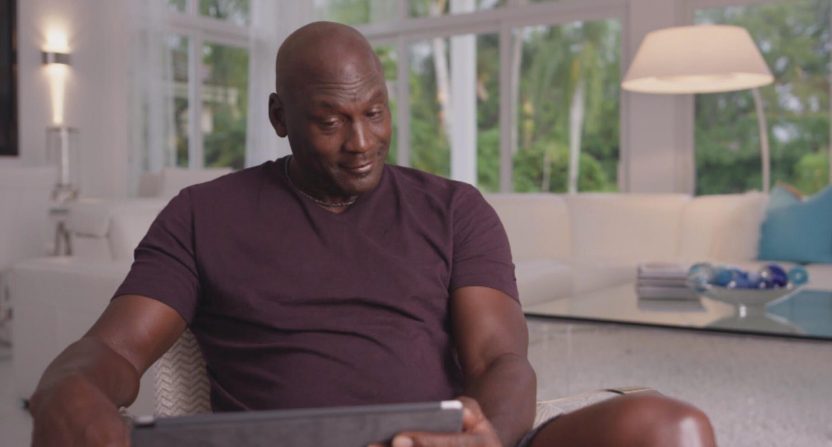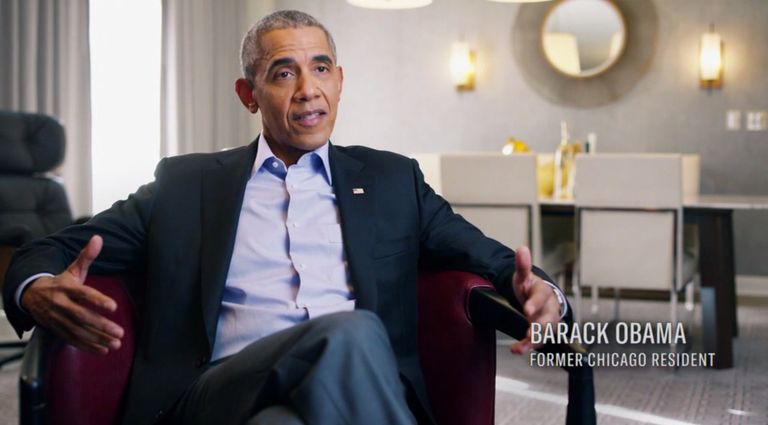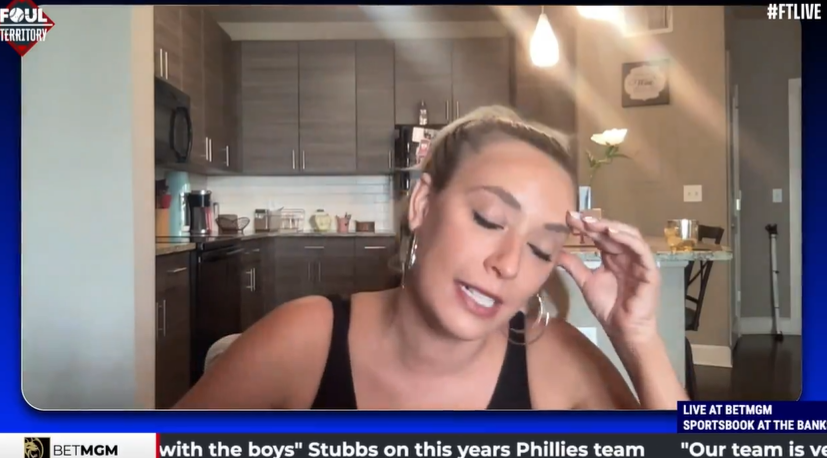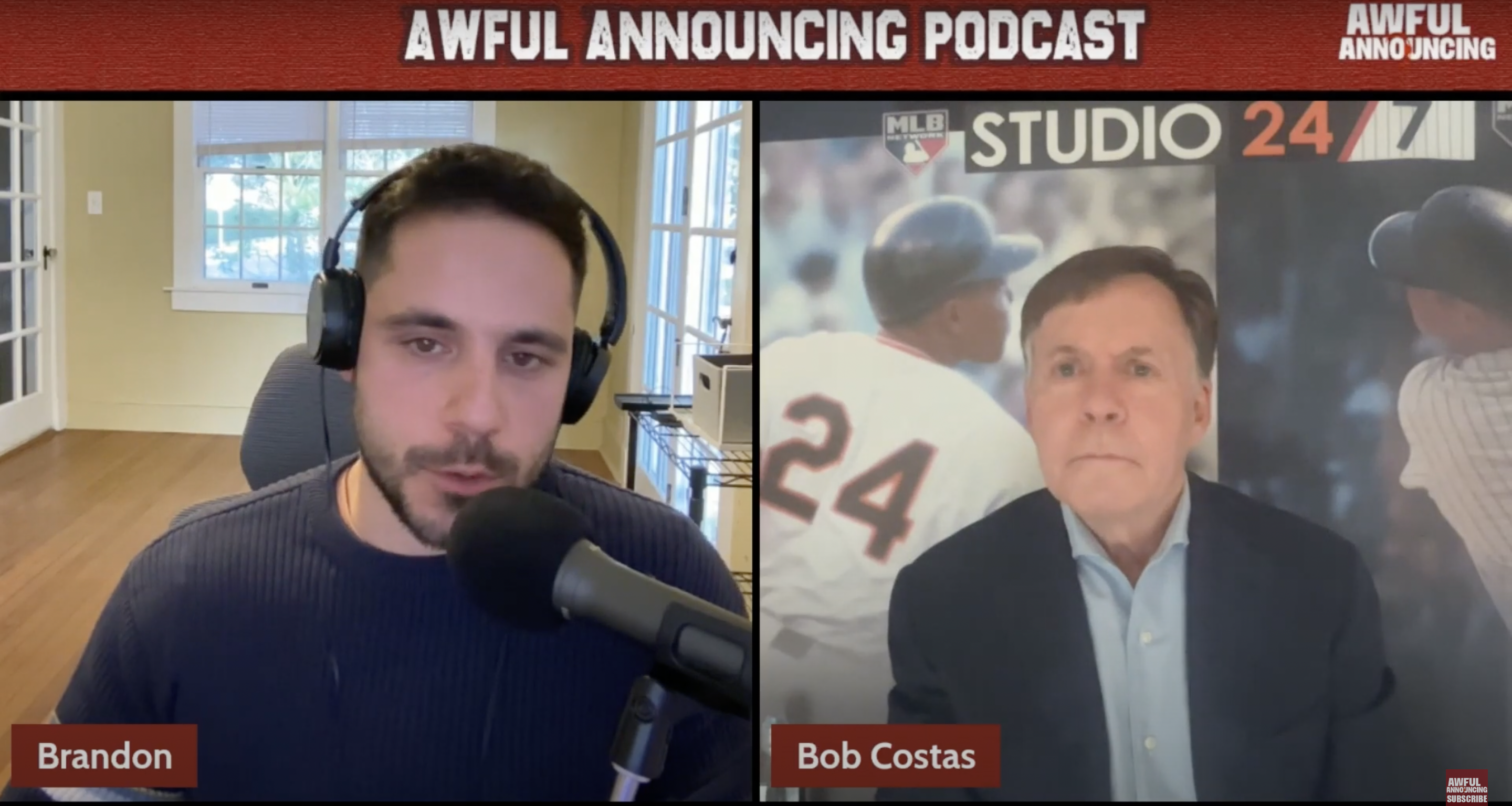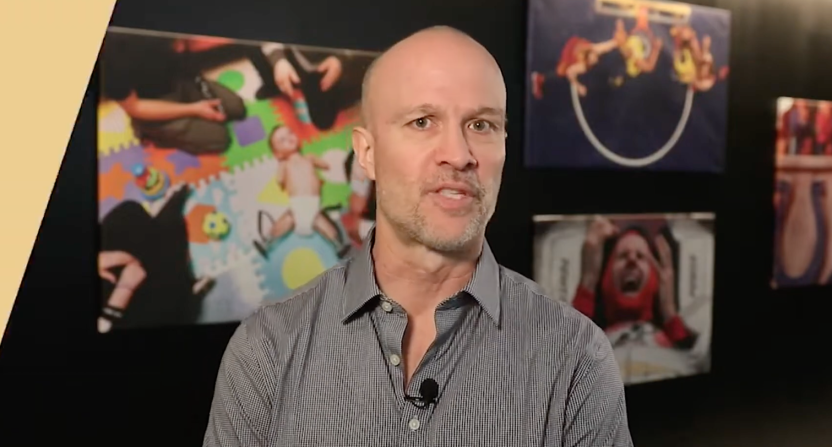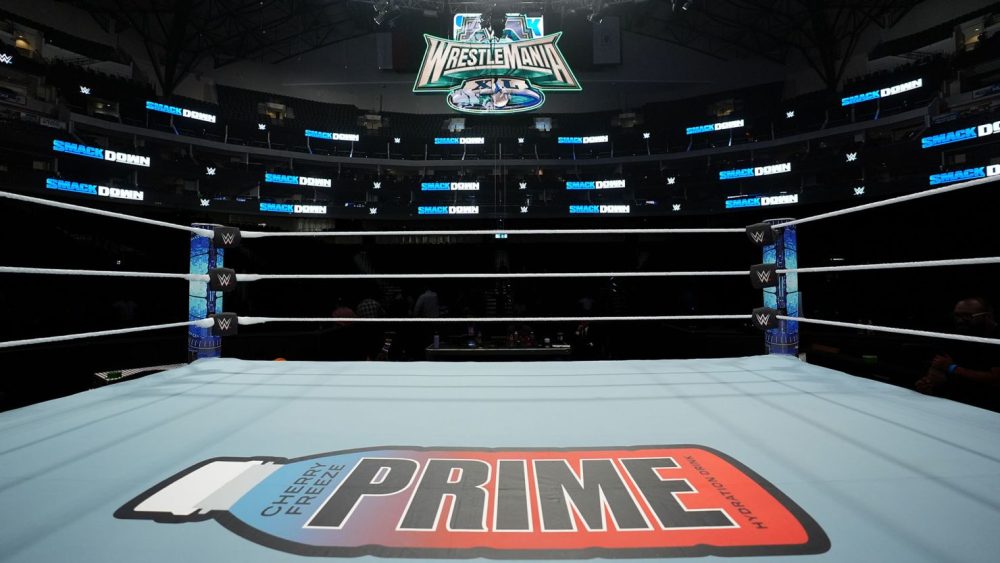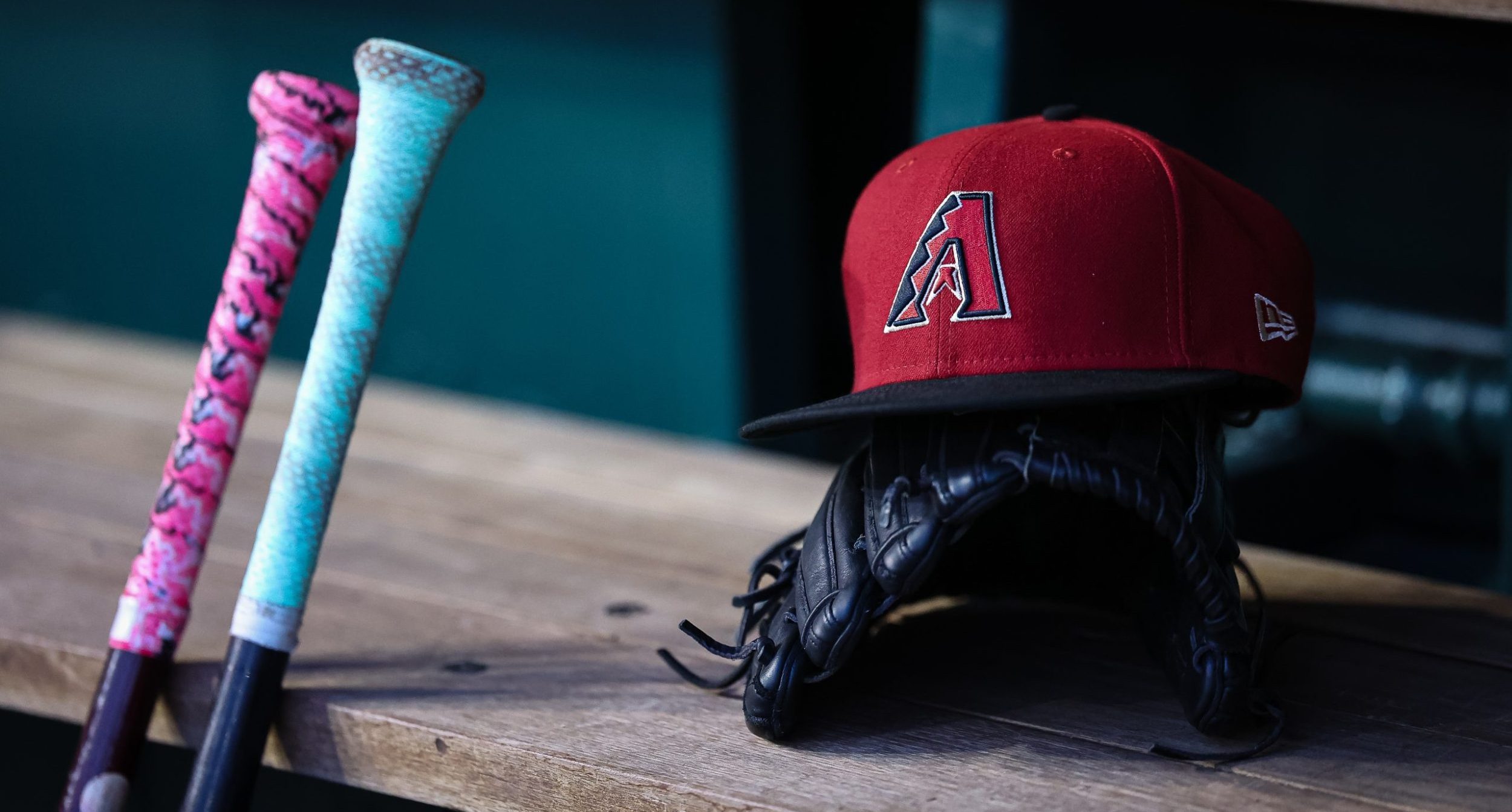We’re about ten days away from the end of what’s been a taxing two years for The Last Dance director Jason Hehir. In our 15 minute interview, Hehir shared that the film has become a necessary obsession for him and one that has prevented him from seeing much of his family and friends the past two years. An already stressful, high profile project has only become more burdensome with higher stakes now that The Last Dance has become the biggest story in sports media during the pandemic. With only a few episodes finished in March, post production was kicked into overdrive with an expedited release. That earlier release and the pandemic meant that post production would be accelerated while being done remotely.
Meanwhile, The Last Dance has taken off as a pop culture phenomenon we’ve never really seen in the sports documentary space, and Hehir has been doing far more media appearances than expected (he estimated at one point that he may be nearing his 100th interview). Below are Hehir’s thoughts on a variety of topics about the doc, as he sits at an unprecedented place during an unprecedented time while his project is devoured in record numbers during one of the most disruptive and depressing times in recent history.
Note: This interview has been lightly edited for clarity and brevity.
On the social media outcry to release The Last Dance early and how that process played out behind the scenes
I think that people’s perception that it was a social media tsunami that spearheaded the move to air this earlier is a little bit off base. ESPN all of a sudden found themselves not just lacking content, but they had none. There were no live sports to watch anywhere in the world. It’s not just like they could show cricket on the other side of the planet. Everybody was locked down. We knew right away at the end of that week, after the Gobert game on the 11th, I think Friday the 13th was when we were starting to read the tea leaves and see that they might want this thing earlier than we had anticipated.
ESPN is now advertising The Last Dance as "coming soon" opposed to airing in June. Full story on @awfulannouncing momentarily. pic.twitter.com/HAc2obivAX
— Ben Koo (@bkoo) March 15, 2020
We had already finished a few of the episodes, so very early that next week of the 16th, we started talking informally with some ESPN people and saying “okay, how many are done and when will the last one be done?” That was really the important one. “When will you be done with the entire series?” What we didn’t want to do was start airing it and then outpace ourselves and all of a sudden when it’s time to air the last episode, we are still working on it. So we had to do a target date for the final episode and then back time it from there. Then we had to say “do we want to do ten weeks out from there and do one per week? Or five weeks and do two per week? Do we want to do two straight weeks with five per week leading up to that end date for the final episode?” We’re still not done with the tenth episode, so the schedule is turning out to be pretty accurate for what we anticipated. They eventually landed on two per week for five weeks, which I think was the perfect call.
On if The Last Dance airing during a pandemic alters his feelings for the film and the work he and his team have done
I definitely think that this project will always be viewed through the lens of a pandemic when we talk about when this aired, when we had to get it done, and the process to get it done. It’s always going to be talked about through the lens of COVID. But we took a great amount of pride, my team and I, in fast-tracking this and getting it up as soon as we could. It’s uncanny the way that the timing happened because I think it lends itself to something that is comforting for people to watch right now. If this was heavier subject matter, stuff that was difficult to watch, I don’t think it would be as embraced as it has been. I think this is steeped in nostalgia and it reminds people of a fun, warm time they had watching these games themselves or with friends or family. So people that watched it back then can go back to that safe place and re-experience it themselves, or they can share it with kids they may have now that didn’t experience this the way they did when they were kids. It’s a safe storyline.
I hate to keep using the words “warm” or “nostalgic,” but it’s a comforting place to go back to when watching these episodes because everyone has great memories, sports fans especially, have great memories of watching these games and listening to those songs. There’s some classic hip-hop music in here that we put a lot of thought into. It was meant to be fun. It’s an examination of a fun time, and we certainly tackle some issues that are more serious than others, but I think it’s exactly what people need right now as a diversion and a momentary escape from all this madness.
Were the record ratings and unprecedented coverage for the series a surprise, or something he foresaw?
I knew that the Bo Jackson documentary did 3.6 million viewers I believe.. I think that the OJ premiere ABC had roughly the same numbers. So I thought that we would probably outrate those, just because of the subject matter, because Michael puts asses in seats back then when he was playing, and he still does now. And also just because of the dearth of programming out there, sports fans are starved for anything new they can discuss and pick apart. That’s part of how we consume sports these days, is to pick it apart and deconstruct it and this is kind of tailor made for that.
It is surprising and surreal to me to see the episodes being recapped as if they are sporting events. That the top story on ESPN is recapping what happened in the episodes as if they are unfolding in real time like a sporting event. That’s the surreal thing to see. We wouldn’t have, I don’t think we would have nearly the attention without this crisis, because people are just so starved for anything in the sports world that they can sink their teeth into.
How much more difficult is it to make a 10 hour project over a normal sized 1-2 hour documentary, like his previous projects?
To give you an idea, it’s about a year from the inception for an one-hour archival documentary, which would be 50 minutes for ESPN. So that year would include the inception of the idea, signing the deal, doing the research, going out and shooting everything, coming back and figuring out what the story is going to be, editing it, getting notes back, final revisions, post-production. We are doing ten episodes of those hours in two years, so we are working at quintuple the pace. We have had as many as seven editors total on this project. There are four main editors, but we have brought a few other people in that have rotated in and out and I have done some editing myself. So we have had five edit rooms going at once, so obviously it’s impossible for me to be in all five of those rooms. The level of editors we have on this is incredible. So it was actually an advantage to the project to give them a level of autonomy. It was fun to say maybe this guy is more of a Knicks fan, so he should take that, or this guy is fascinated by Dennis Rodman’s personality, so let’s give him that.
This number has been bandied about, but there were 10,000 hours total of footage in our avid project. So in our system, we had 10,000 hours of footage. There were almost 500 hours of footage that was shot behind the scenes that year. I have a 32 terabyte drive in my apartment right now that has thousands of hours of footage on it and all of our editors do in their apartments as well. So there was just an enormous haystack of footage to sift through to find these needles of storylines and footage. Everything was just exponentially bigger and more challenging. I’ve never cast so wide a net for any subject. It would be interesting to do the math to see the total number of interviews we did for “The Fab Five”, “‘85 Bears”, “Andre the Giant,” and “Bernie and Ernie”. If you add those all up, I don’t think they add up to 106, which is what we did for this one project. It has necessarily become an obsession for me the past two years. I had to be obsessed with it in order to work at that pace. I’ve seen a lot less of my family and friends over the last couple of years, but it was what had to be done in order to get this thing done on time and actually a couple months early.
Has he been surprised by what moments have gone viral and what viewers have latched onto?
Absolutely. It was one of the most fascinating things to observe, to see how people are consuming this and what grabs their attention. Something like Michael’s response to the traveling cocaine circus moniker. That was something I expected people would latch on to because it was so rare to see Michael throw his head back and laugh like that. But something subtle like the “Former Chicago resident” graphic on Barack Obama…that wasn’t filmed to be funny, that was literally just my way of explaining to the viewers that it’s why Barack Obama is speaking about this. I was adamant that we wouldn’t have someone in there who just was a famous person that was saying that Michael Jordan took the city of Chicago by storm when he came on the scene in the ‘80’s, we wanted someone that was actually there and experienced it. Now, we have plenty of writers that we could have say that, but they are talking about other things. So if we are going to find a former Chicago resident, then who better than the 44th President of the United States? It’s not really relevant that he’s the 44th President of the United States in regards to that story, but what is relevant is that he used to live in Chicago and he was there and can give a first hand account.
Today, the one that’s funny to me is John Michael Wozniak’s hair and his shrug after the game with Michael. That seems to be catching on. Michael’s mom, both in her demeanor and appearance. She is over 80 years old, and she doesn’t look or act like it. For her to take off the way she has and to see people attributing to her today on Twitter with the birth of the Air Jordan by making her son get on a plane over 30 years ago, that is a really cool thing to see. I know what’s coming up in these episodes, so it’s fun to try to play the game of what people are going to latch onto.
Is Jerry Krause getting a fair shake? Is there another narrative about his involvement and role of the team that we haven’t really seen in the film?
I think people were more prone to defend Jerry as it’s just human nature when someone is not around to defend themselves. We tried especially hard to include as much archival B-roll footage of Jerry speaking and sound from Jerry that we could. It’s very easy to cast someone as the villain when Michael Jordan is your hero and the person is being seen as the linchpin for bringing this dynasty down. But it’s not as simple as that.
You can begrudge Jerry for saying that “organizations win championships”, but he has a point. You know Michael was there when he came, but every other piece of that puzzle Jerry put into place. He made some gutsy trades, had some brilliant draft picks, and he foresaw the brilliance of the Triangle Offense. He saw something in Phil Jackson that no one else saw and put him in a place to win six titles. He’s a really complicated character. I really wish that we could have sat down with him because I would love to interview him and ask him all sorts of questions for a few hours and I’m sure he’d want to defend himself as well. I think by the end of this doc, you’ll see some unlikely names and faces praising Jerry in a supportive way.

